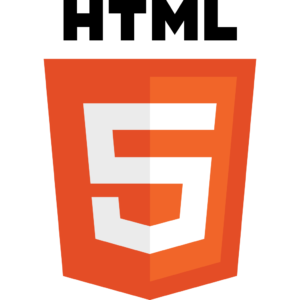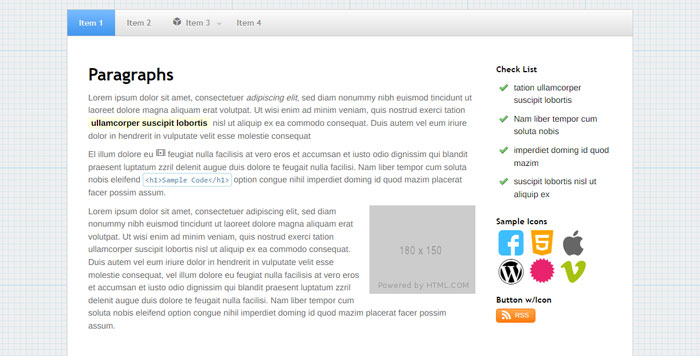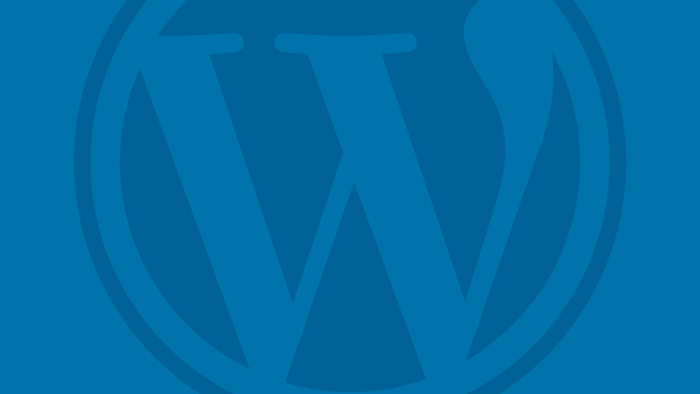If you’re building one of your first websites, your head might spin while deciding what platform to use. The two most affordable options are plain HTML or WordPress, the most popular content management system on the web.
WordPress is free, open-source software that runs your website. All you need is a domain + website hosting plan with nearly any provider or price level, depending on your needs.
Let’s dig into HTML vs. WordPress with the pros and cons of each!
Why Choose HTML for Your Website?
There are many reasons to go with HTML, and the #1 argument is that it’s the raw source code of all web pages. If you truly want to understand how websites function, you need to understand basic HTML, CSS, and a sprinkle of Javascript.

Regardless of whatever platform is generating the website, the output will always be an HTML document. The CSS (Cascading Style Sheets) provides the design, and the Javascript gives you interactivity once the page is loaded. So it’s powerful to understand how everything operates.
My favorite site (by far) to learn HTML, CSS, and JS is W3 Schools. They provide all the syntax you’ll need to copy/paste along with live examples to test things in a “sandbox” area before implementing them on your website.
If you’re a tech geek or a computer person like me, spend a few days learning for a solid background in HTML basics.
Going HTML means uploading completed files to your web server, which is much faster than any DIY website builder, WordPress included.
The quick rule of thumb is HTML is best for simple, informational websites. If you’re just building a one-page website, such as a resume or company brochure, any platform like WordPress, Wix, or Webflow is probably overkill.
I dug into my projects folder (with files dating back to 2012) and found an HTML framework that provides done-for-you styles called “HTML Kickstart.”

With a framework like this, they’ve created designs and animation with CSS/JS, and all you need to do is use their documentation to write HTML according to their standards.
This example shows the web’s beauty and the hard part — there are thousands of these frameworks, platforms, and libraries to build your website. It’s overwhelming to me, so I can only imagine how it feels to a complete beginner.
Why Choose WordPress for Your Website?

At some point along the way, I realized that any website with several pages (i.e., a blog) is a pain to manage with a code editor. WordPress solves that problem by providing an administration system to create pages, posts, themes, accounts, and more.
It is a breeze to control an established website with hundreds or thousands of pages.
That’s where the WordPress database comes in.
One common question I get is some version of this…
“If I create an About page on WordPress, where is that HTML file on the web server?”
It doesn’t work that way.
With WordPress, you install “themes,” the templates that generate a wide array of pages. Then, all of the page content goes into the database.
In the “About” page example, there’s a database entry for that page, with a template generating the front-end display. That template can run many pages.
A theme hierarchy determines which template file takes precedence to output specific pages. The template files are what render the finished HTML on the front end.
Separating the actual page/post content from the design is a beautiful feature because you have a lot more design flexibility with WordPress. You simply switch out your themes to test a completely different design. All of your content is unchanged within the database.
WordPress is nothing more than PHP scripting language on your web server, which interacts with the database to pull and save information.
Remember how we said WordPress is open-source? That means you can inspect every line of code that makes up your themes and plugins. It’s a great way to learn PHP, HTML, CSS, and Javascript.
Final Verdict — HTML or WordPress
Nowadays, I always vote for WordPress unless it’s a super simple 1-page website.
Even though I love to code, you must make this trade-off between optimization and ease of use. WordPress makes editing easier with all its tools, especially if you manage multiple websites.
And it doesn’t have to be an either/or situation. Because WordPress is open-source, learn and apply your customizations with code. You’re not limited to your theme’s options.
But the entire point of WordPress is to enable any beginner to make a website without requiring web development skills. You don’t need to know any code to run a WordPress website.
WordPress version 6 and beyond allows non-coders to customize templates with the new “full site editor” feature. This only works with block-enabled themes.
Right now, 3rd-party template companies such as Divi by Elegant Themes or Elementor have solved the problem of drag-and-drop customization. You have the same power as a seasoned website designer or a digital marketing agency with page builders such as these.
Or choose a minimal, free theme. That keeps your website lightweight, both in performance and on your wallet.
Only you can choose the best option for the website vision in your head.
If you select WordPress, here’s a little help to jump-start your progress!

